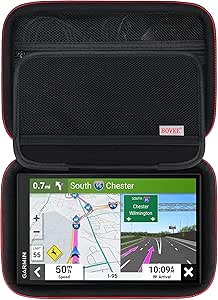We’ve all been there. You’re relying on your car’s GPS to get you to that crucial appointment, only to find yourself unexpectedly on a bumpy dirt road, or worse, completely lost. So, just how accurate are modern car GPS navigators? The answer, as with most things, is: it’s complicated. While they’ve come a long way, achieving a level of precision previously unimaginable, several factors can impact their accuracy, leading to sometimes frustrating detours.
The Technology Behind the Maps

Modern car GPS navigators rely on a combination of technologies to pinpoint your location and plot a route. The core is the Global Navigation Satellite System (GNSS), primarily using GPS satellites orbiting the Earth. These satellites transmit signals that your car’s receiver picks up, calculating your position based on the time it takes for those signals to travel. This data is then cross-referenced with highly detailed map data stored within the navigation system itself.
The accuracy of this process depends on several factors, including the number of satellites visible (more satellites generally mean higher accuracy), the quality of the receiver, and the strength of the satellite signals. Obstacles like tall buildings, dense foliage, or even bad weather can interfere with the signals, reducing accuracy. Further enhancing the system, many modern navigators incorporate other technologies such as Digital Maps and inertial measurement units (IMUs) which improve the overall precision of locating and tracking the vehicle.
Factors Affecting GPS Accuracy

While the technology is constantly improving, various factors can still throw off even the most sophisticated GPS system:
- Signal Interference: As mentioned, buildings, trees, and even atmospheric conditions can weaken or block GPS signals, resulting in less accurate positioning.
- Map Data Updates: GPS systems rely on map data that needs regular updates. Outdated maps might show roads that no longer exist, or miss newly constructed ones, leading to inaccurate route guidance.
- Real-Time Traffic Data: Many systems incorporate real-time traffic data to avoid congestion. However, the accuracy of this data depends on the sources and how effectively the system processes it. Inaccurate traffic data might lead to longer routes or unexpected delays.
- GPS Receiver Quality: The quality of the GPS receiver in your vehicle plays a significant role. High-end systems often offer better sensitivity and accuracy than those in budget models.
- User Input Errors: Incorrectly inputting your destination or failing to account for changes in your route can also lead to inaccuracies.
Beyond the Basics: Advanced GPS Features

Modern GPS navigators are far more than simple route planners. Many incorporate advanced features designed to improve accuracy and user experience:
- Lane Guidance: This feature helps you stay in the correct lane for upcoming turns, particularly useful on complex interchanges.
- 3D Map Views: These provide a more realistic representation of the terrain, improving your understanding of the route and making it easier to identify potential obstacles.
- Voice Guidance: Clear and timely voice prompts keep you informed about upcoming turns and directions.
- Offline Maps: Some systems allow you to download maps for offline use, ensuring you can still navigate even without a cellular or data connection.
Comparing GPS Systems: Accuracy and Features
GPS accuracy can vary significantly between different car manufacturers and navigation systems. High-end systems often boast better accuracy, more detailed maps, and advanced features. It’s important to read reviews and compare features before making a purchase. Consider factors like map updates, traffic data integration, and the user interface when making your decision. Some manufacturers offer subscription services for map updates, while others may have a limited lifespan of the maps included in the car.
Practical Advice for Users

To maximize the accuracy of your car’s GPS navigator, consider the following:
- Keep your maps updated: Regularly check for map updates and install them promptly. Most systems provide notifications when updates are available.
- Double-check your destination: Always ensure the address you’ve inputted is correct before starting your journey.
- Be aware of your surroundings: Don’t blindly follow the GPS; use common sense and be alert to potential hazards or road closures that the system might not account for.
- Use multiple sources: If you’re unsure about a particular route, consider using a secondary navigation app on your smartphone as a backup.
- Understand the limitations: Remember that even the most advanced GPS systems are not infallible. Be prepared to adapt your route if necessary.
Modern car GPS navigators have drastically improved in accuracy and functionality over the years. However, perfect accuracy remains elusive due to various factors beyond the system’s control. By understanding these factors, using best practices, and being aware of the limitations, you can significantly improve your experience and rely on your car’s navigation system with greater confidence.
Ultimately, the accuracy of your car’s GPS is a blend of technological prowess and mindful usage. With a little understanding and some proactive measures, you can minimize the frustration and maximize the benefit of this essential in-car technology.


